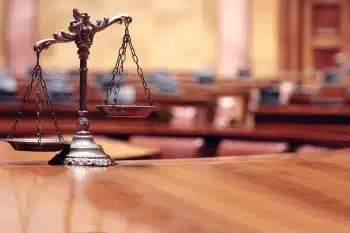Home » US Business & Employment News • US business news » Federal judge to decide if US government coerced social media censorship
Federal judge to decide if US government coerced social media censorship
https://www.whatjobs.com/news/usa/us-business-news/federal-judge-to-decide-if-us-government-coerced-social-media-censorship

[et_pb_row admin_label="row"]
[et_pb_column type="4_4"][et_pb_text admin_label="Text"]
A federal judge is to rule on whether the Biden administration's actions to combat disinformation online veered into coerced censorship.
The Republican attorneys general of Missouri and Louisiana brought the lawsuit.
Biden administration is accused of pressuring social media platforms to remove dissenting views on Covid-19 policies and election security.
Read More: Merck sues US government over new law allowing Medicare to negotiate drug prices
The lawsuit, titled Missouri v. Biden, stands out among similar cases challenging social media account suspensions and content removals based on First Amendment grounds.
The presiding judge, Terry A. Doughty, has allowed the case to proceed and granted the plaintiffs permission to gather evidence.
It includes email communications between White House officials and social-media companies and depositions of high-ranking government officials like Dr. Anthony Fauci.
Judge Doughty, appointed by former President Trump, is considering intervening in communications between the Biden administration and major platforms like Twitter, Facebook, Instagram, and YouTube.
Read More: Music publishers sue Twitter for $250 million for copyright infringement
A ruling on the states’ request for a preliminary injunction prohibiting federal officials from coercing social media companies into censoring disfavored speakers, content, and viewpoints, is also expected.
The suit argues that government officials exerted undue influence on social media companies through veiled threats of regulatory liabilities and antitrust enforcement.
It says the government suppressed dissenting views on mask mandates, Covid-19 vaccinations for children, and more.
Need Career Advice? Get employment skills advice at all levels of your career
While other courts have rejected similar claims, Missouri v. Biden has broader implications as states assert an interest in safeguarding the speech rights of their citizens.
The plaintiffs point to email exchanges between White House officials and platform executives.
They allege collusion between government agencies and social media platforms in flagging First Amendment-protected speech for censorship.
The Justice Department, representing the government defendants, denies the allegations and says the government's actions were necessary for public health, safety, security, and combating foreign malign influence campaigns.
Follow us on YouTube, Twitter, LinkedIn, and Facebook.
[/et_pb_text][/et_pb_column]
[/et_pb_row]
[/et_pb_section]














